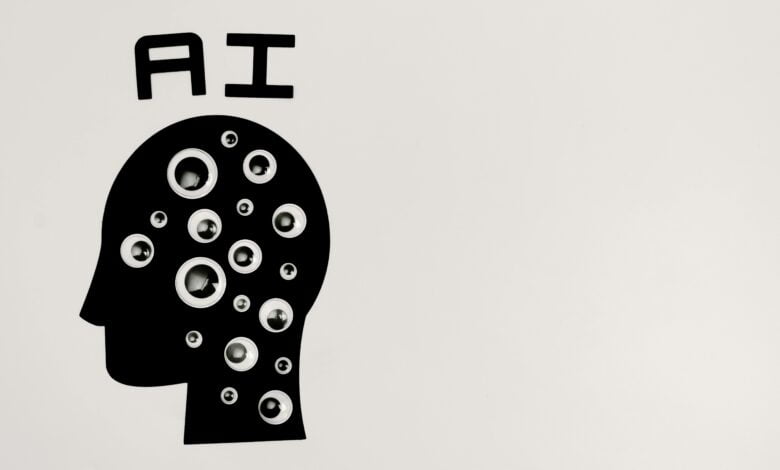
Artificial intelligence (AI) is a term that has been buzzing around in recent years, but what exactly does it mean? In simple terms, AI refers to the ability of machines to perform tasks that typically require human intelligence. These tasks include learning, reasoning, problem-solving, perception, and even creativity. But how does AI actually work, and what are its applications in today’s world? Let’s delve deeper into the fascinating world of artificial intelligence.
Understanding the Basics of AI
At its core, artificial intelligence involves the development of computer systems that can mimic human cognitive functions. This involves processing large amounts of data, recognizing patterns, and making decisions based on that information. AI systems learn from experience, continuously improving their performance over time through a process known as machine learning.
Types of Artificial Intelligence
There are various types of artificial intelligence, ranging from narrow AI to general AI. Narrow AI, also known as weak AI, is designed to perform a specific task or a narrow range of tasks. Examples of narrow AI include virtual personal assistants like Siri and Alexa, as well as recommendation algorithms used by streaming services like Netflix.
On the other hand, general AI, also known as strong AI, refers to AI systems that possess the ability to understand, learn, and apply knowledge across a wide range of tasks, much like a human. While we have not yet achieved true general AI, researchers are actively working towards this goal.
How Does AI Work?
AI systems rely on algorithms, which are sets of rules or instructions that govern their behavior. These algorithms process input data, analyze it, and generate output based on predefined objectives. Machine learning algorithms, in particular, enable AI systems to improve their performance over time by learning from past experiences.
Applications of AI
Artificial intelligence has a wide range of applications across various industries and sectors. In healthcare, AI is used for medical image analysis, drug discovery, and personalized treatment recommendations. In finance, AI algorithms are employed for fraud detection, risk assessment, and algorithmic trading. In transportation, AI powers autonomous vehicles, traffic management systems, and predictive maintenance solutions.
Challenges and Limitations of AI
While the potential of artificial intelligence is immense, it also poses significant challenges and limitations. Ethical concerns surrounding AI include issues such as algorithmic bias, privacy concerns, and the impact of automation on jobs. Moreover, AI systems are only as good as the data they are trained on, which means that biased or incomplete data can lead to biased or inaccurate results.
The Future of AI
Despite these challenges, the future of artificial intelligence is bright. Advances in AI technology continue to drive innovation across industries, creating new opportunities for growth and development. As AI becomes more sophisticated and pervasive, it has the potential to transform our society in profound ways, from revolutionizing healthcare to powering the next generation of smart cities.
Conclusion
In conclusion, artificial intelligence is a rapidly evolving field with the potential to revolutionize the way we live, work, and interact with the world around us. By understanding the basics of AI and its applications, we can better appreciate its impact on our lives and society as a whole. As we continue to explore the possibilities of AI, it is important to approach its development and deployment with caution, ensuring that it benefits humanity in a responsible and ethical manner.
FAQs
1. How is artificial intelligence different from human intelligence?
- While artificial intelligence aims to mimic human intelligence, there are significant differences between the two. Human intelligence is characterized by consciousness, self-awareness, and emotions, which AI systems currently lack.
2. Can artificial intelligence replace human workers?
- While AI has the potential to automate repetitive tasks and improve efficiency, it is unlikely to completely replace human workers. Instead, AI is more likely to augment human capabilities, allowing us to focus on more complex and creative tasks.
3. What are some ethical concerns surrounding artificial intelligence?
- Ethical concerns surrounding AI include issues such as algorithmic bias, privacy concerns, and the impact of automation on jobs. It is important to address these concerns to ensure that AI technologies are developed and deployed responsibly.
4. How can I learn more about artificial intelligence?
- There are many resources available for learning about artificial intelligence, including online courses, books, and tutorials. Additionally, keeping up to date with the latest developments in the field through news articles and research papers can provide valuable insights.
5. What are some potential future applications of artificial intelligence?
- The potential future applications of artificial intelligence are vast and diverse. Some possibilities include AI-powered robots for tasks like eldercare and home assistance, virtual assistants with advanced conversational abilities, and AI-driven innovations in fields such as agriculture, education, and cybersecurity.



